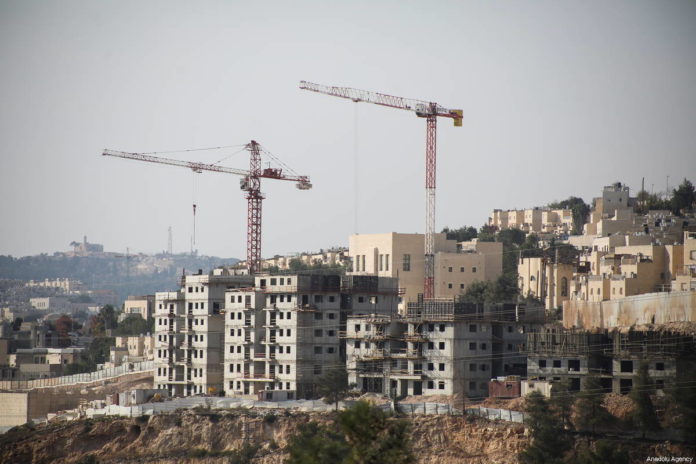
Middle East Monitor / November 21, 2019
In an unsurprising move which exposes the ongoing US commitment to establish new paradigms for Israel in which Palestine is completely eliminated, Secretary of State Mike Pompeo declared Israeli settlements as “not necessarily illegal”. At first glance, this declaration isolates the US and Israel from the rest of the international community, which has consistently maintained rhetorically that Israeli settlements are illegal under international law.
“The hard truth is that there will never be a judicial resolution to the conflict, and arguments about who is right and who is wrong as a matter of international law will not bring peace,” Pompeo asserted.
Global condemnation, while united in its rejection of another unilateral decision by the US, is largely concerned by the threat to international law posed by such a statement. Legally, the US statement does not alter what has been established regarding settlements constituting a violation of international law. The threat, therefore, must be contextualised within the perpetual dispossession which Palestinians face daily, which is also against international law. Yet this has clearly not bothered the international community enough to pontificate about – possibly because dispossession has been relegated solely to the dynamics governing humanitarian aid.
Palestinian Authority spokesman Nabil Abu Rudeinah pointed out that “the US administration is not qualified or authorised to cancel the resolutions of international legitimacy, and does not have the right to give any legitimacy to the Israeli settlements.”
This is perhaps one of the few instances where the US is facing verbal opposition from the rest of the international community over its actions. However, a look at the statements also indicates the reluctance to directly emphasise Israel’s culpability and the international collusion that propped a colonial power in Palestine. The two-state paradigm is obsolete and Israeli colonialism has been normalised by the same international community which has temporarily united to oppose the US decision until the hype dies down, as it eventually will.
The harm such a decision poses to the Palestinian people, however, will reap severe repercussions. By declaring the settlements legal, the US is openly disseminated Israel’s narrative and promoting the elimination of Palestinians. Normalising the colonial state and its settler population has been a global effort – the latest unilateral decision by the US builds upon the previous violations allowed by the international community. For as long as there is a piece of legislation to quote when violations occur, the international community considers its duty accomplished.
In reality, the statements have not differed much from the responses whenever Israel announced the approval of further settlement expansion. It is not just Israel that has rendered international law inadequate in addressing violation; lack of action from the international community is also to blame for the current political escalation in Israel’s favour.
The intermittent posturing – always to protect the international consensus regarding the two-state compromise rather than enabling Palestinians towards their political rights – stands in contrast to Israel’s constant mobilisation that promotes its security narrative and which cannot be dissociated from the current US-Israeli hyperbole on settlements and alleged peace. Pompeo’s statement is not without precedents in terms of normalising Israel as a state void of colonialism. How will the international community now proceed to halt the elimination of Palestinians and their rights?
Ramona Wadi is an independent researcher, freelance journalist, book reviewer and blogger. Her writing covers a range of themes in relation to Palestine, Chile and Latin America.












